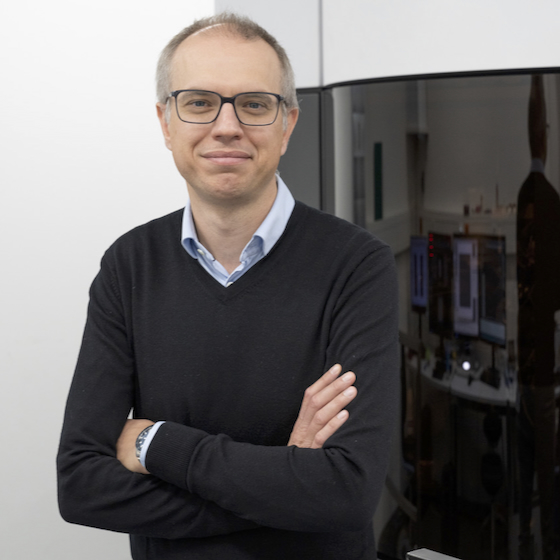
Martin Jinek, PhD
Martin Jinek is Full Professor in the Department of Biochemistry at the University of Zurich, Switzerland. His research is focused on the molecular mechanisms of protein-nucleic acid complexes involved in genome regulation and defense pathways, and their applications as genome engineering tools and technologies. Dr Jinek’s scientific interests focus on two research topics. One line of research centers on CRISPR-Cas and related genome defense systems, aiming to elucidate mechanistic principles that will advance the understanding of their biological functions and guide their development as next-generation genome editing technologies. A parallel research direction explores the molecular basis of eukaryotic post-transcriptional gene regulation, with a focus on multisubunit complexes and interactions involved in RNA processing and modification pathways. In his studies, Dr Jinek uses biochemical and structural approaches to investigate these molecular systems at the atomic level.
Originally from the Czech Republic, Martin Jinek studied Natural Sciences at the University of Cambridge, UK. He carried out his doctoral research at the European Molecular Biology Laboratory (EMBL) in Heidelberg, Germany, under the supervision of Prof Elena Conti. He subsequently moved to the University of California at Berkeley for postdoctoral research with Prof Jennifer Doudna, where his work made fundamental contributions towards the discovery of the CRISPR-Cas9 system and its development into a powerful genome editing technology. In 2013, Dr Jinek set up his independent research group in Zurich. He was awarded European Research Council (ERC) Starting and Consolidator Grants, and became EMBO Young Investigator as well as International Scholar of the Howard Hughes Medical Institute. In further recognition of his work, Dr Jinek has received the EMBL John Kendrew Young Scientist Award and the Friedrich Miescher Award of the Swiss Society for Molecular and Cellular Biosciences. In 2024, Dr. Jinek was elected Member of the European Molecular Biology Organization.